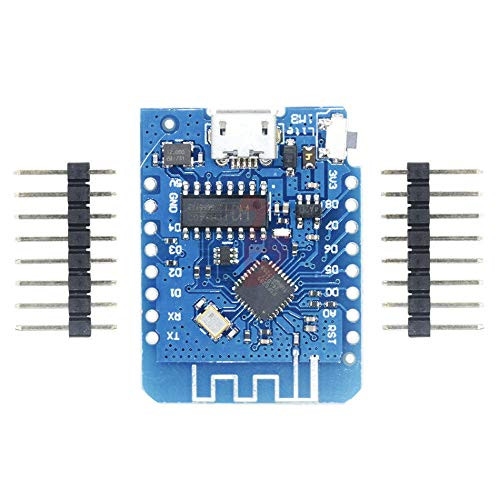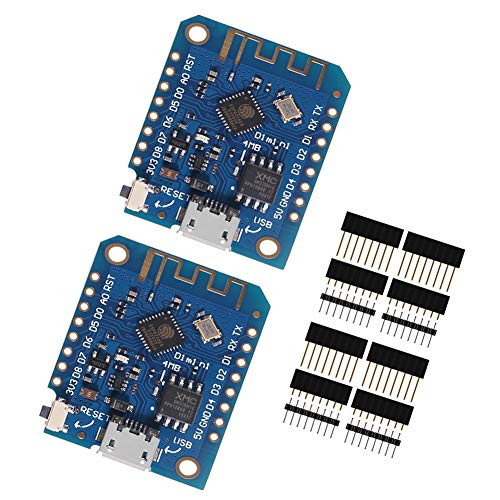What is ESP8285?
ESP8285 = ESP8266 + 1 m, bearing high temperature 125° (one for ESP8266 just 85 °). More importantly, the code programmed in ESP8266 can be used for ESP8285 intactly.
The ESP-M3 encapsulates the high performance ESP8285 chip, which equals the ESP8266 chip plus 1 m of flash memory. The ESP825 chip is encapsulated by the extended tensilica's L106 32-bit processor, along with SRAM. The ESP825 has a full and Wi-Fi fuction that can be used alone and alsoused as a slave with other MCU hosters that can start directly from a flash-based. In addition, the built-in high-speed buffer is an allowance for system performance. Especially, the ESP8285 can be used as a Wi-Fi adapter by SPI / SDIO and / or I2C / UART interface, when it is applied to another MCU design.
Features:
Ultra-small size;
Support serial to Wi-Fi;
Wireless Transparent transmission;
Long transmission distance with ultra-low power;
Having a high temperature of up to 125 ° C, compared to 85 ° for ESP8266.
Parameters:
SOC characteristics
Built-in tensilica L106 ultra-low power 32-bit processor, the main frequency supports 80 MHz and160MHz, and rtos;
Built-in protocol tcp / ip;
Built-in one channel 10-bit high-precision ADC;
Hanging interface: hspi, UART, I2C, I2S, IR remote controk, PWM, GPIO;
Deep sleep current 10uA, the cutoff current is less than 5uA;
Service, connect and transfer the data packet for 2 ms;
To consume power less than 1.0 MW (DTIM3), when on stand by status;
Built-in 1 m bytes for SPI flash memory.
Wi-Fi
Features:
Support 802.11 B / G / N / E / I;
Station support, soft AP, soft mode AP + sta;
Support for Wi-Fi Direct (P2P);
Support for ccmp (CBC-MAC, calculation mode), TKIP (mic, RC4), WAPI (SMS4), WEP (RC4), CRC, etc., for hardware acceleration.
P2P search, P2P Go mode / gc mode and P2P power manageme
Wemos D1 Mini Lite V1.0.0 Shield CH340G CH340 WiFi IOT Development Board Microcontroller ESP8285 ESP8266 for Arduino NodeMcu
Was:
$68.92
Now:
$34.46
- SKU:
- ZC121696
- UPC:
- 3003253933795
- Condition:
- New
- Availability:
- Free Shipping. Estimated 2-4 days delivery.







